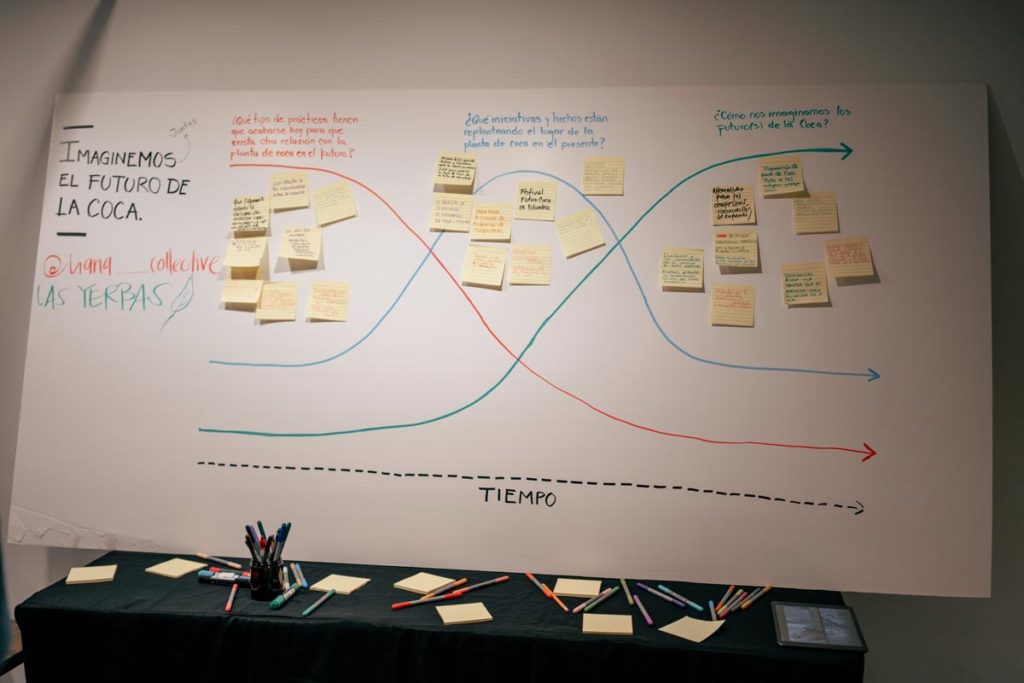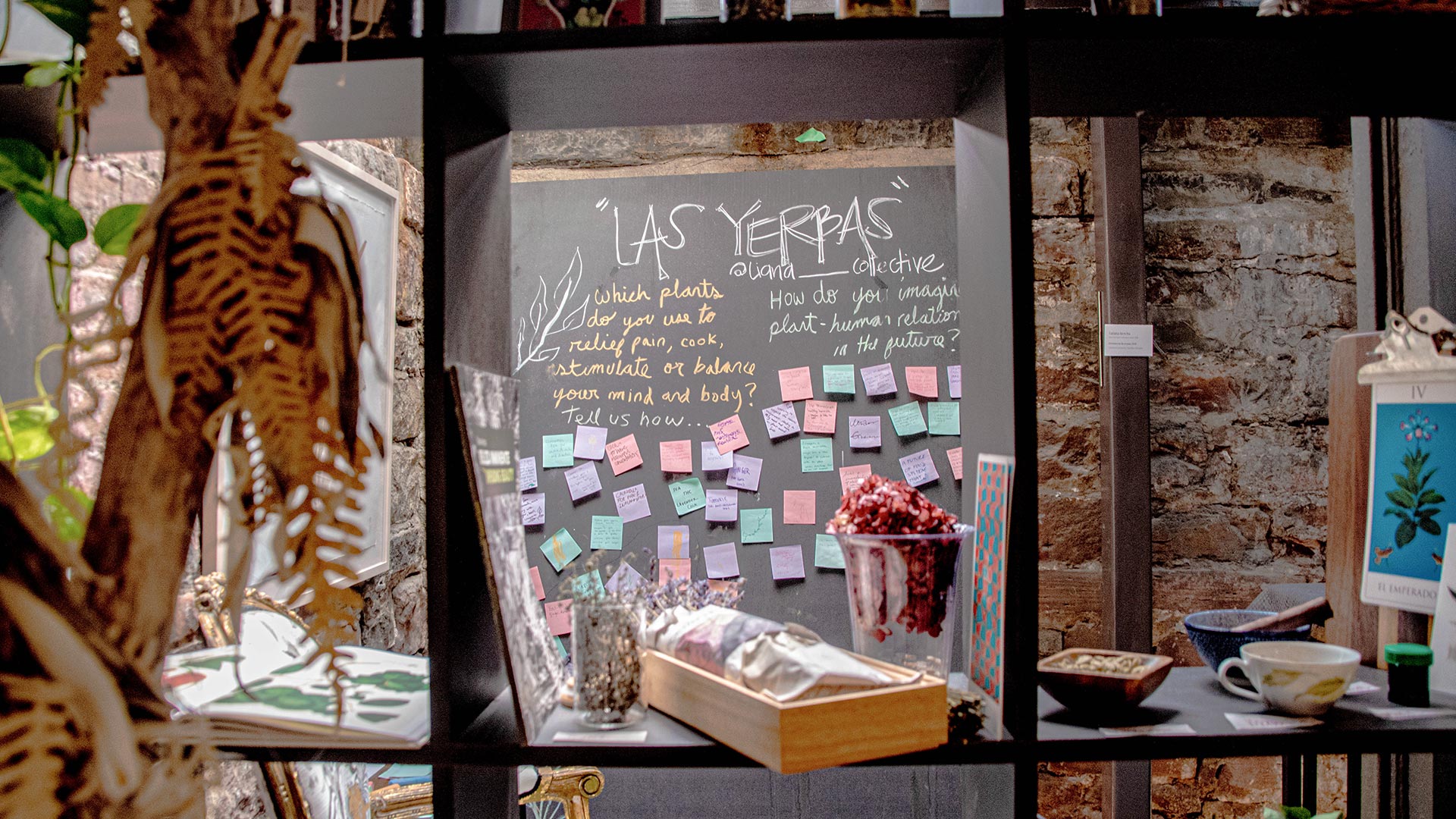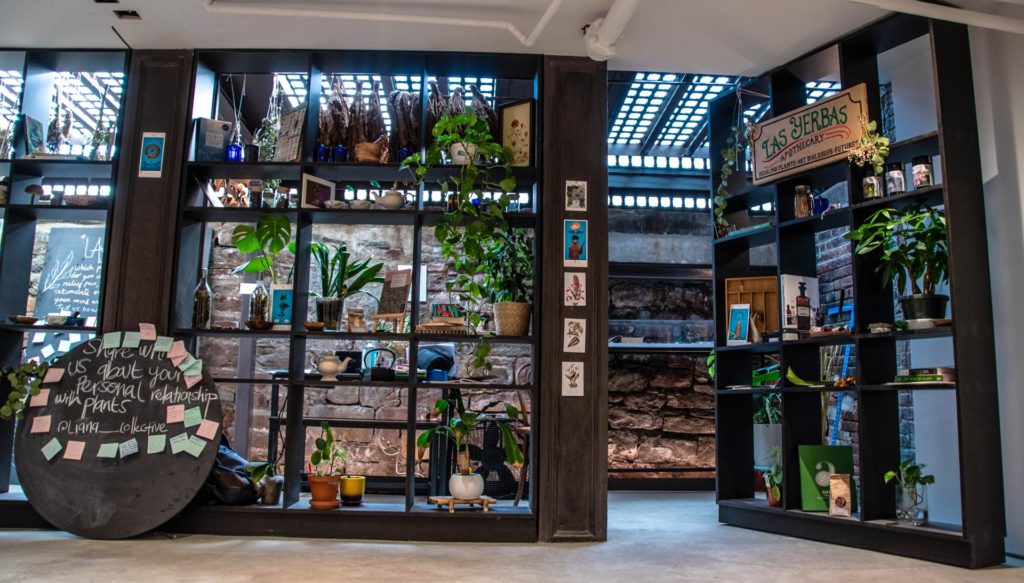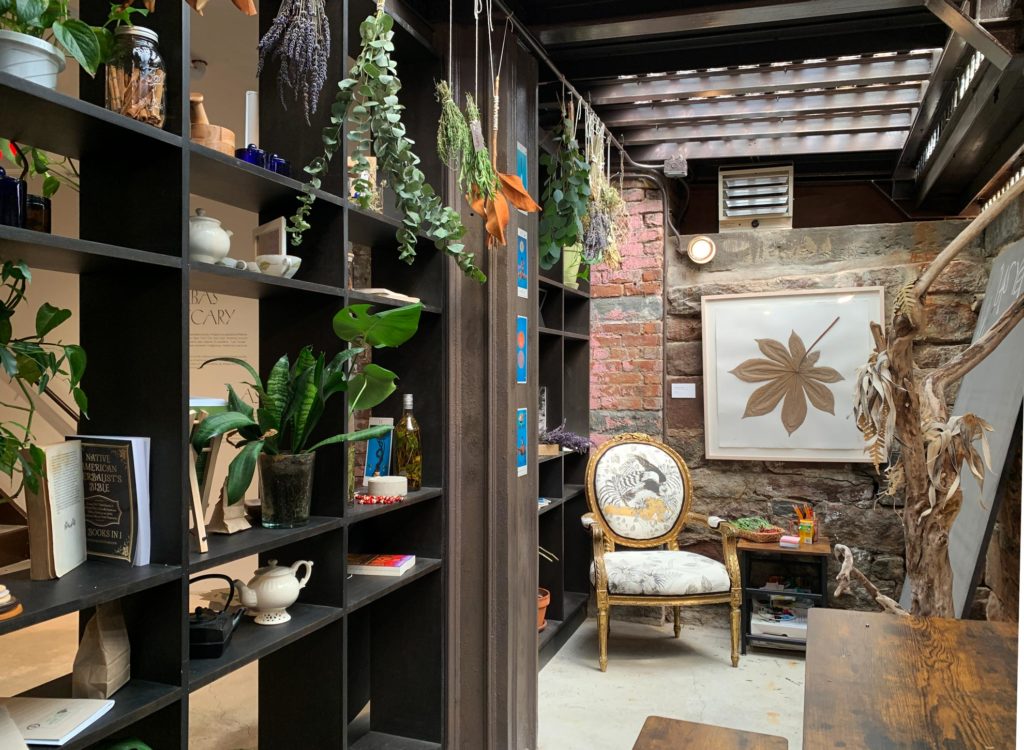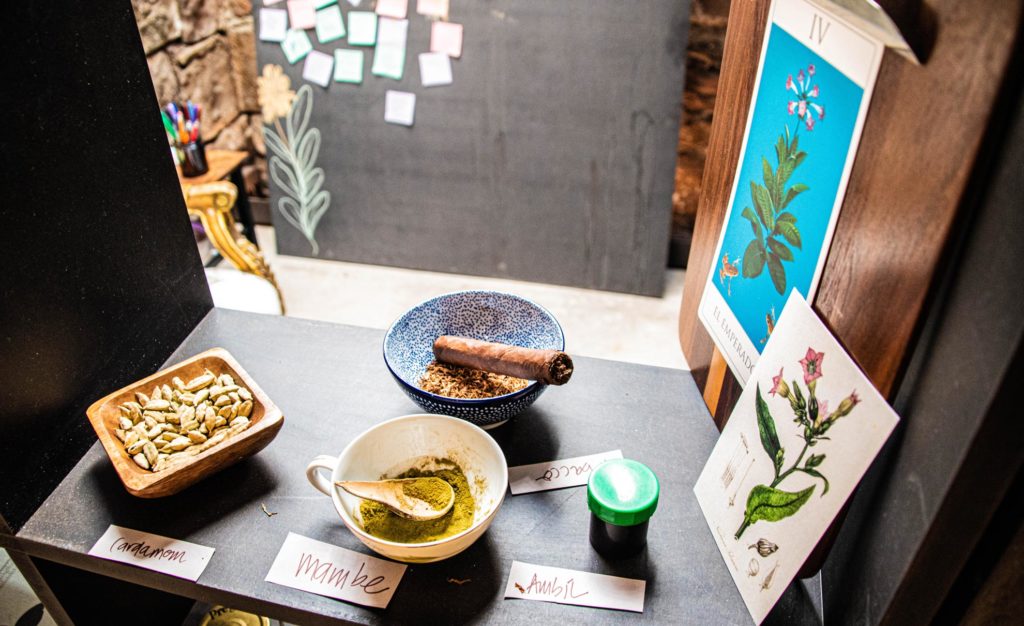Partners: Canal Projects, Tatiana Arocha, Voces, Red de Pueblos Transnacionales, Futuro Coca.
Timeline: July 2023 to Oct 2023.
Approach: Community Engagement, Design Fiction, Curatorial Practices, Oral History, Future methodologies.
Topics: plant-human relationships, indigenous knowledge, decoloniality.
Team: Liana Collective (Juan Pablo Caicedo, Angélica Cuevas and Giselly Mejia)
My role: Oral historian, futurist, researcher, curator, visual artist, and event producer.
Project Statement
Las Yerbas Apothecary installation is part of a research residency at Canal Projects’ Lower Level Library. Las Yerbas is a site for conversations centering on the power of sacred plants between artists, Indigenous sabedores (Native thinkers), local communities, and researchers from New York City and Latin America.
Activations from July to October 2023 will include screenings, plant-centric workshops, readings, and informal gatherings around nourishment, healing, and sharing. Part traditional herbs stand, part cabinet of wonders, the “Las Yerbas” Apothecary presents aesthetic and cultural contrasts between Indigenous medicinal practices and Western apothecaries and offers opportunities for growing together through vegetal discourses.
Las Yerbas is a project of Liana, a collective integrated by interdisciplinary artists and social researchers. The collective aims to foreground the urgency of understanding and expanding upon plant intelligence and wisdom and to promote interspecies dialogue through artistic research and practice. Liana reclaims sacred plants and advocates for their mystical, political, medicinal, and nutritional value within multiple diasporic and local communities. Liana investigates plant-human relationships and plant-based artistic practices, broadening public conversation about plants and seeking to reposition them as subjects with agency that can contribute to rethinking community well-being and healing.
Las Yerbas’ three lines of inquiry
- Plant Intelligence
- Plant Healers
- Plant Futures (My primary focus on Las Yerbas)
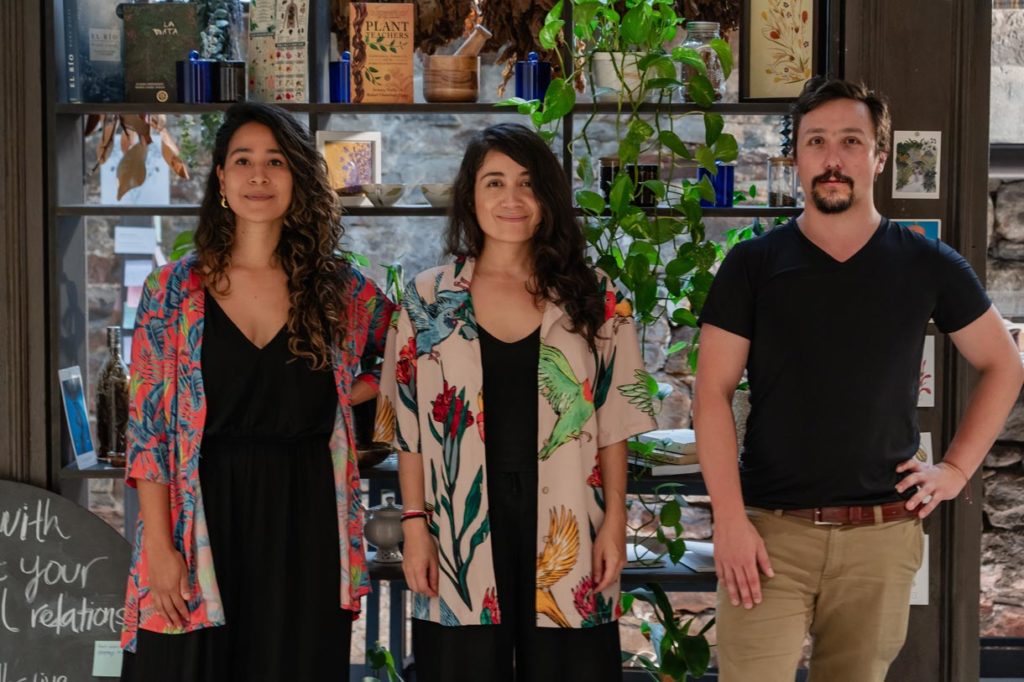
Projects details
The Research Library
Las Yerbas Apothecary opened its shelves in Canal Projects on July 14, 2023. The space was curated to mix the aesthetics of a Western apothecary and a traditional herbs stand in Latin America. The books, plants, dried herbs, seeds, and artworks also portray this contrast. Las Yerbas is an open, free, and interactive installation where visitors are welcome to sit down to read the books, open jars and smell the herbs, drink a cup of tea, share their opinions, questions, and thoughts, and even contribute some stuff to the space.
The space hosts four artworks from the New York-born Colombian artist Tatiana Arocha:
- Impending Beauty, 2023
- Decocainizing Coca: Challenging Western Narratives of a Sacred Plan, 2023
Activations and Collaborations
During the research residency, Liana hosted various public events that served as active research experiments and spaces for critical discourse.
1. Vegetable Dialogues
During the research, we engaged with artists, herbalists, traditional healers, ethnobotanists, farmers, and gardeners to learn about their connection with the plants, their practices of reciprocity, and their visions of plant-human relationships.
2. Hable y Vea Coca
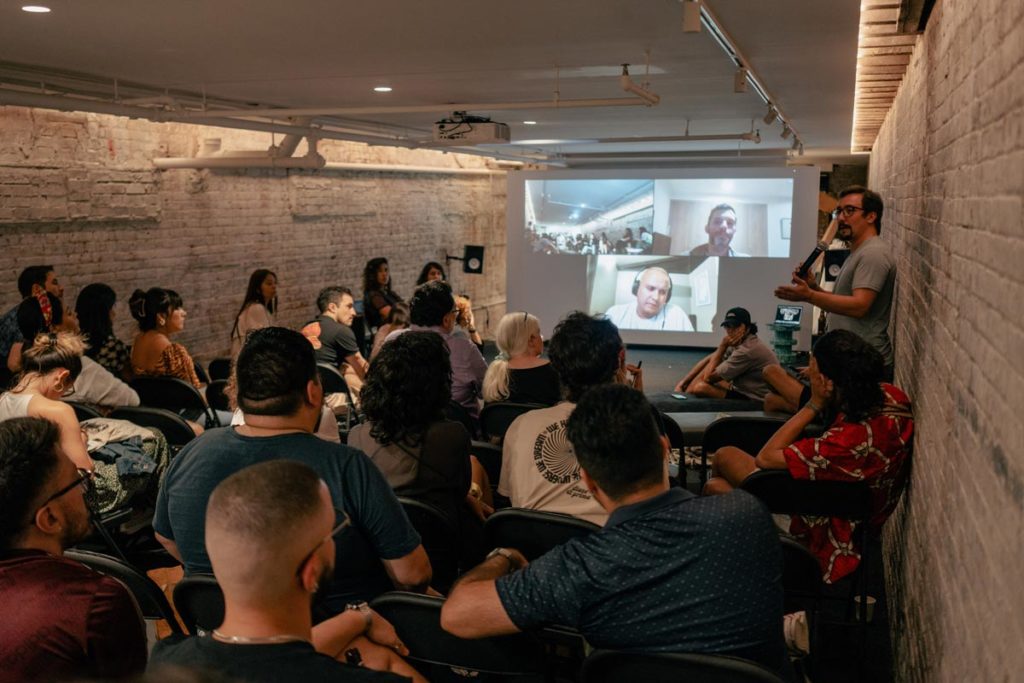
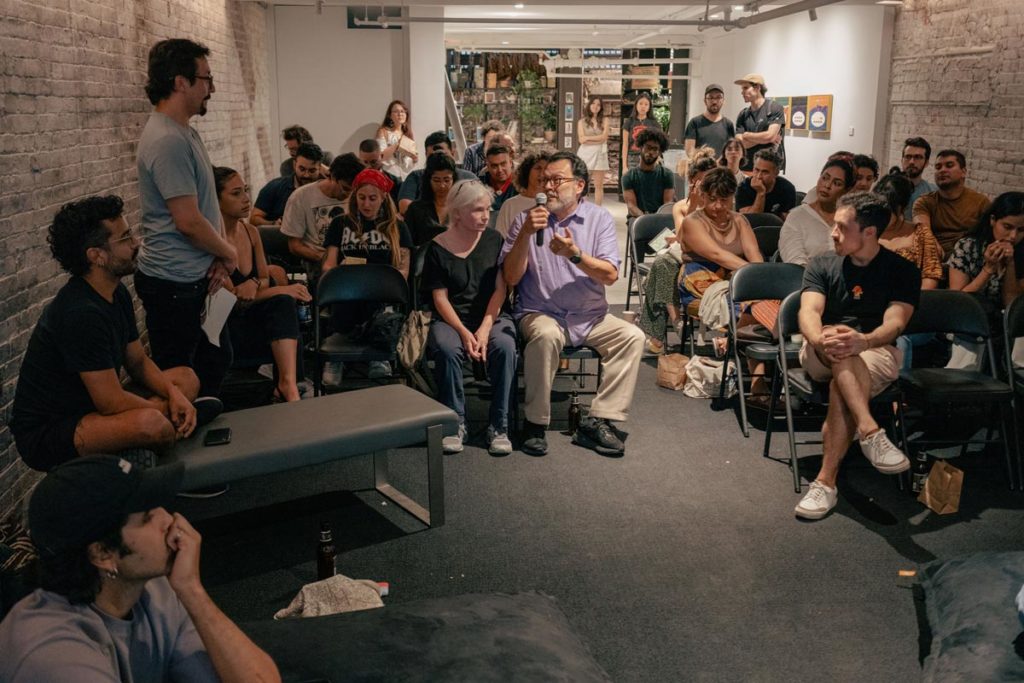
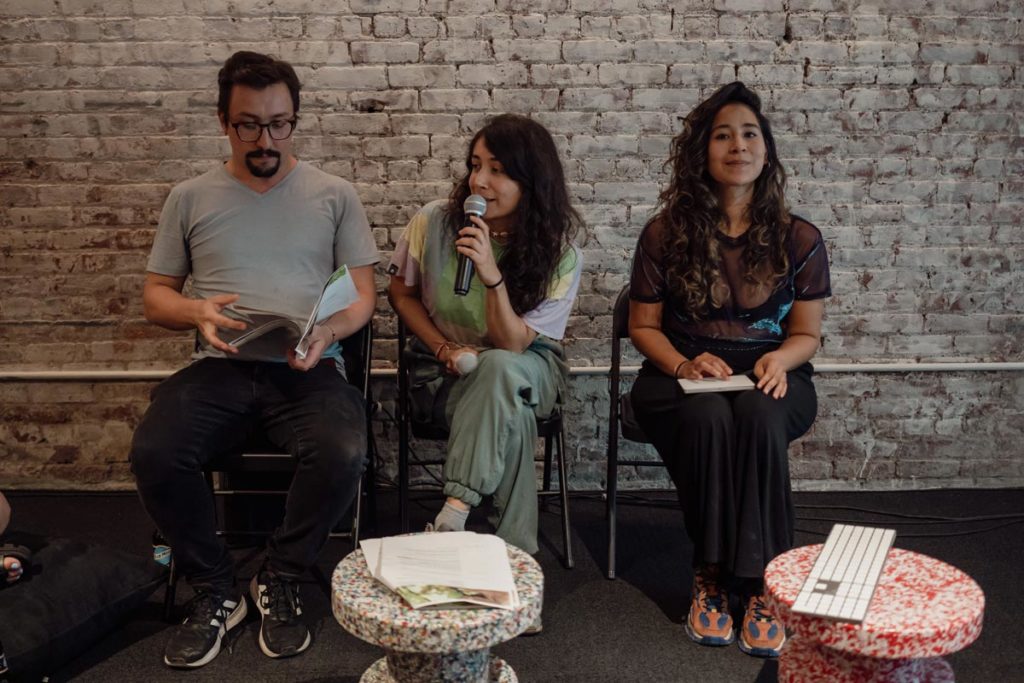
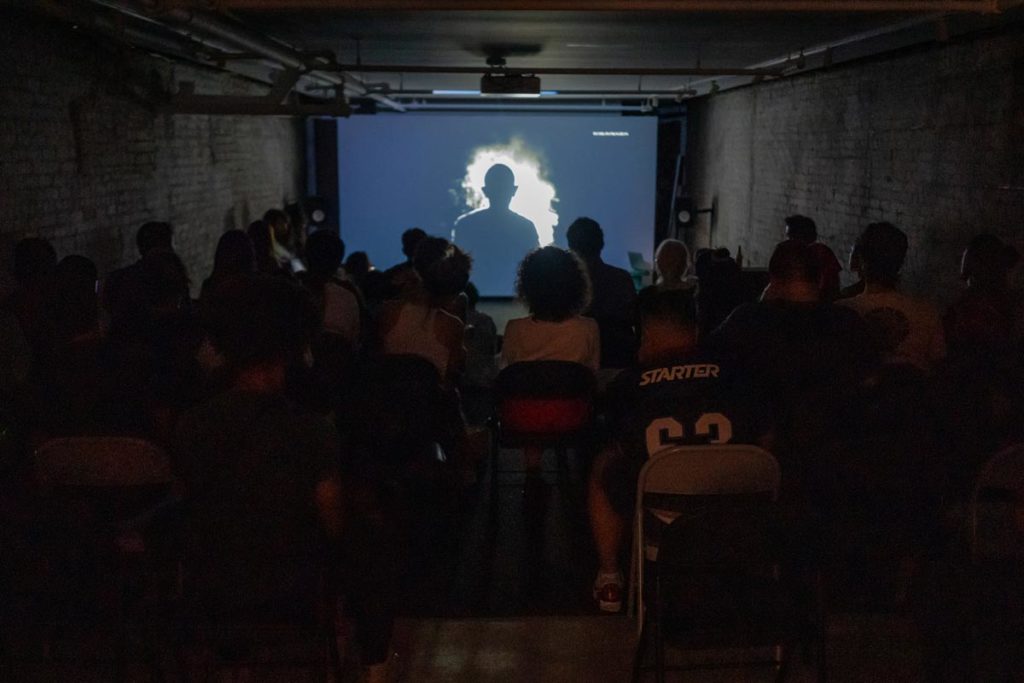
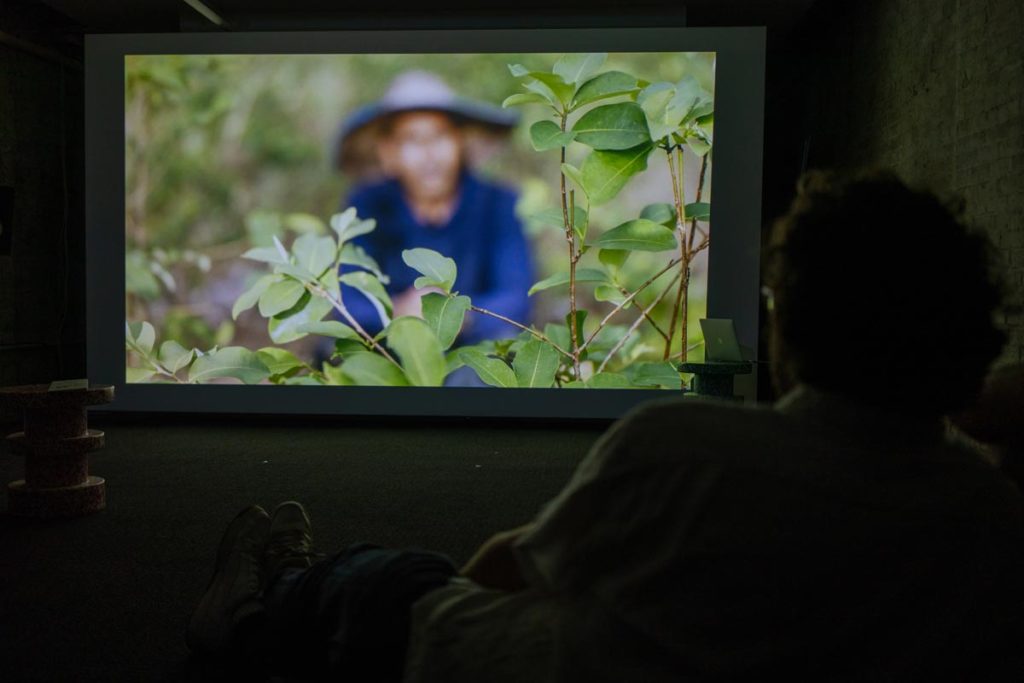
Liana partnered with the Colombian festival Futuro Coca to activate a critical conversation around the coca leaf.
In Hable y Vea Coca, we screened four short films accompanied by short dialogues with Alejandro Osses and Carmen Osada, co-founders of the Futuro Coca festival held in Bogotá, Colombia in July 2023. These short films speak about the actions and policies linked to the War on Drugs that have brought decades of persecution of coca growers and serious social impacts and human rights violations, especially in rural populations in Colombia.
During this event, we were joined by immigrants from Colombia, Perú, and México, that shared their relationships with the coca plant within their contexts and what are their visions of the future of the Coca Leaf.
3. Voces – Red de Pueblos Transnacionales
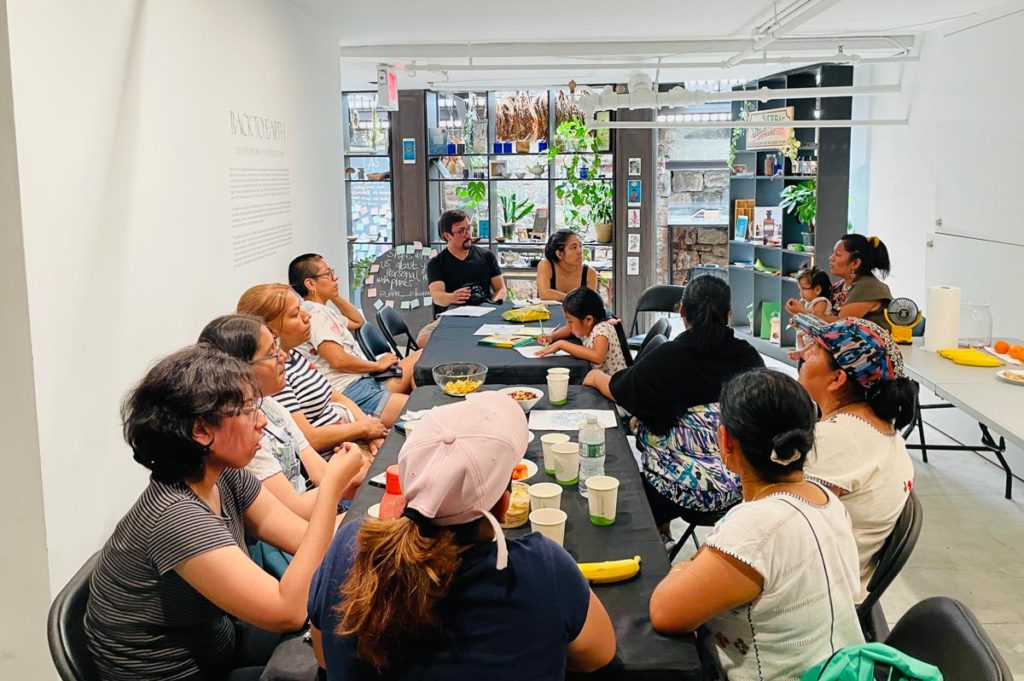
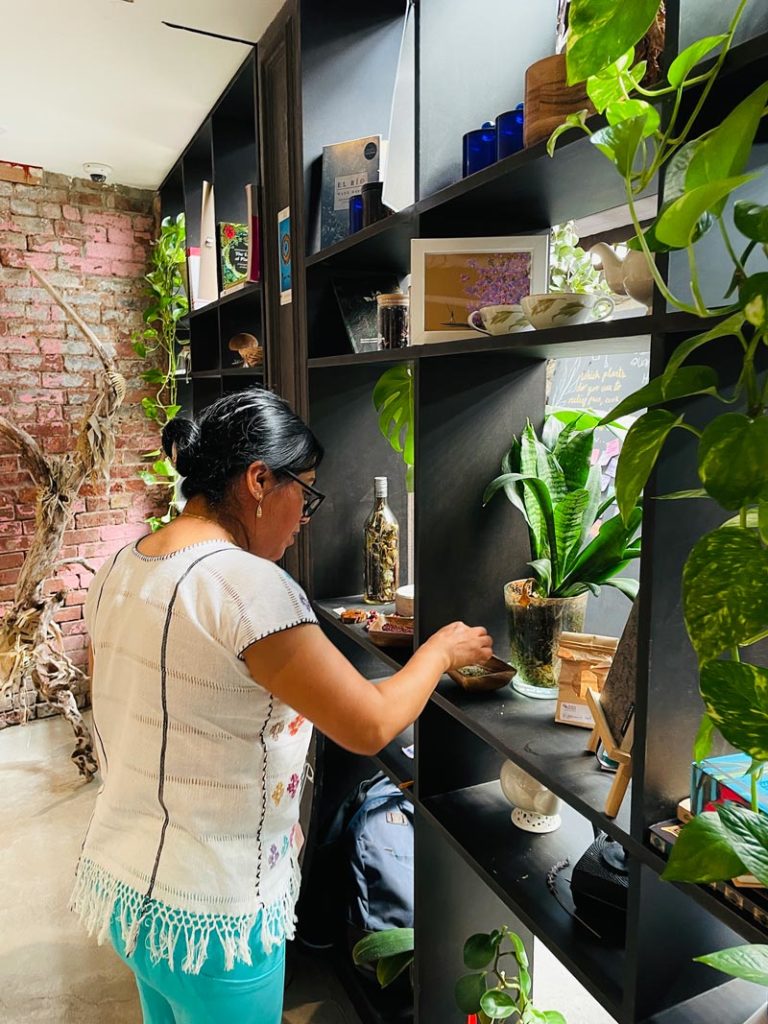
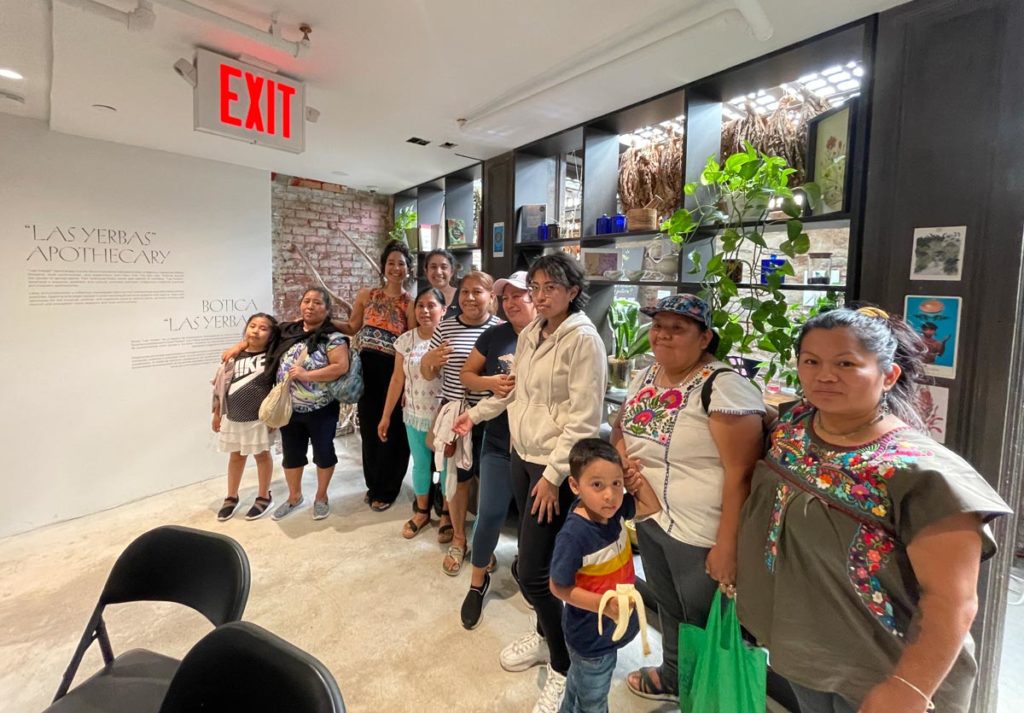
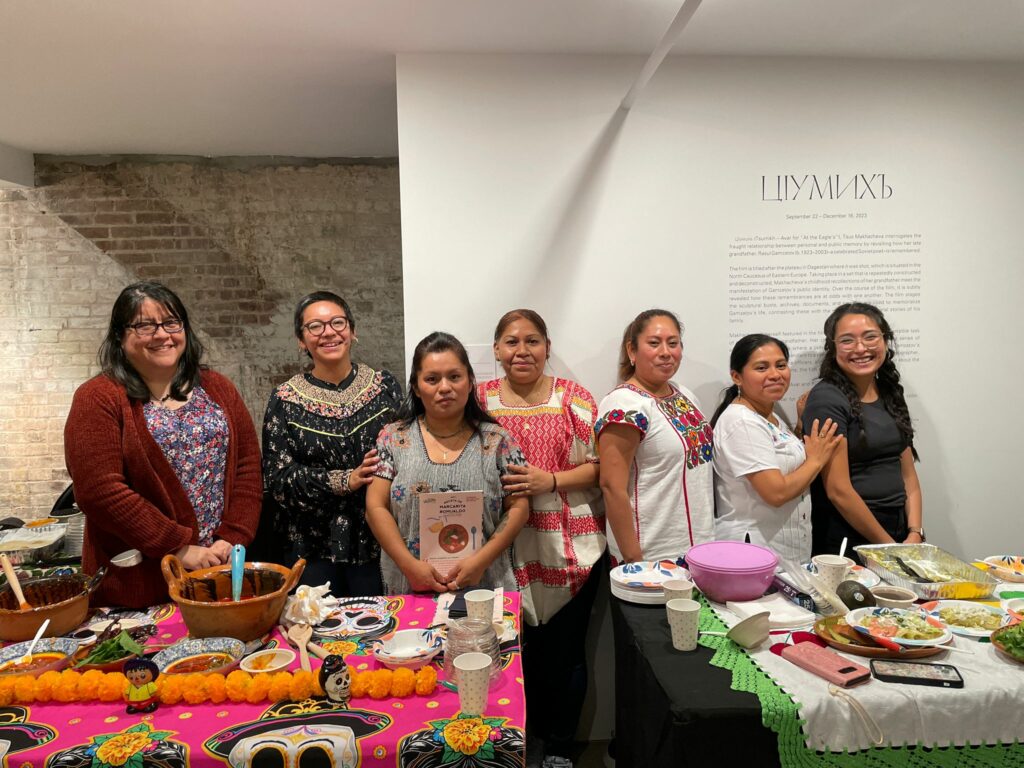
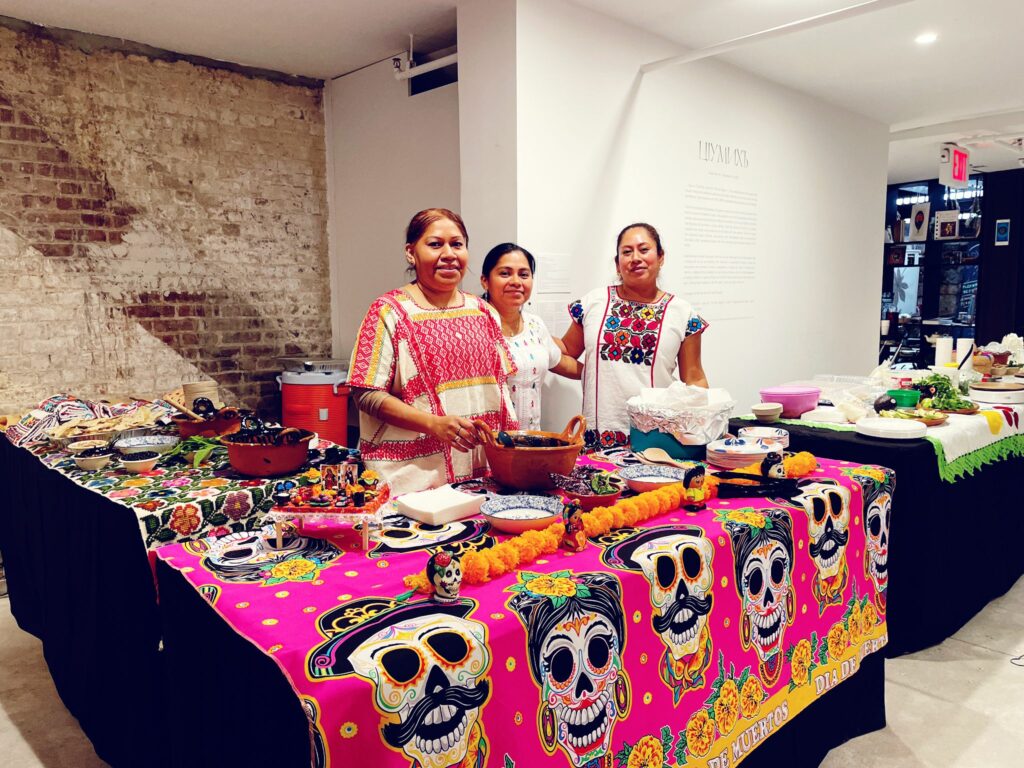
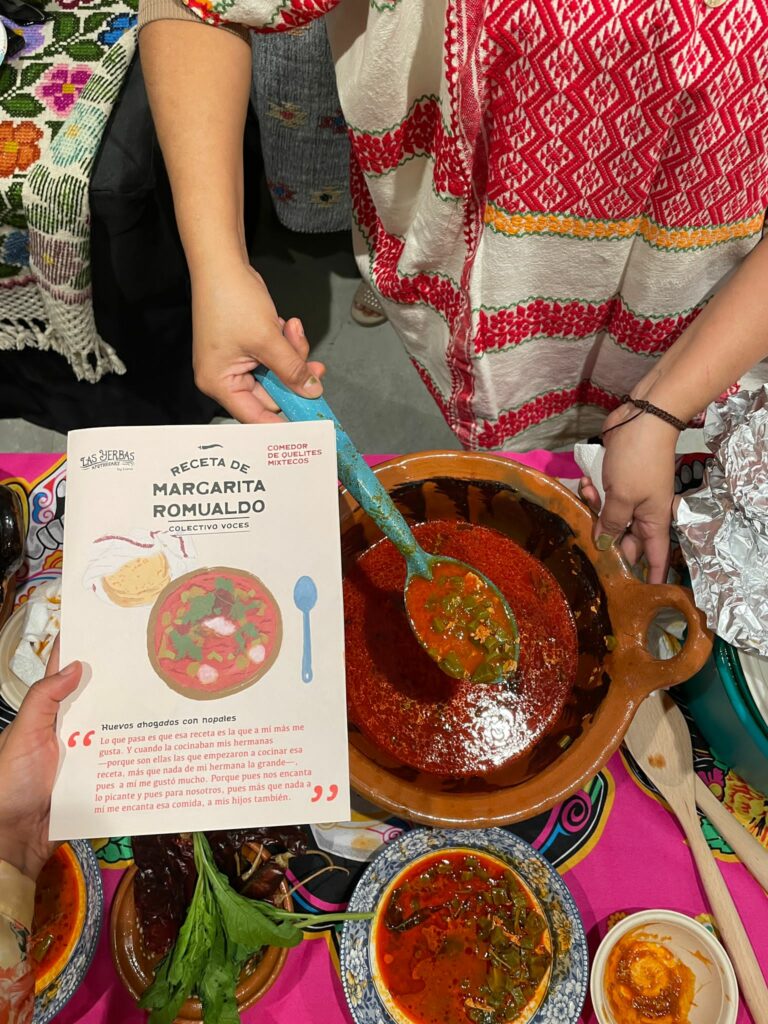
Liana started a Collaboration with Voces, a collective of Mixteco migrant women from Guerrero, Mexico, seeking to preserve their language, medicinal plants, and traditional recipes with a decolonial lens and a vision for intergenerational knowledge transfer.
The ongoing collaboration started with a series of oral history interviews where Voces women shared their relationship with plants. We worked to produce a recipe book to learn and disseminate how the indigenous women of the mountains of Guerrero use plants to preserve their culture.
4. Vegetal Narratives
(Imprinting, Frottage, and Plant-Pressing Workshop)
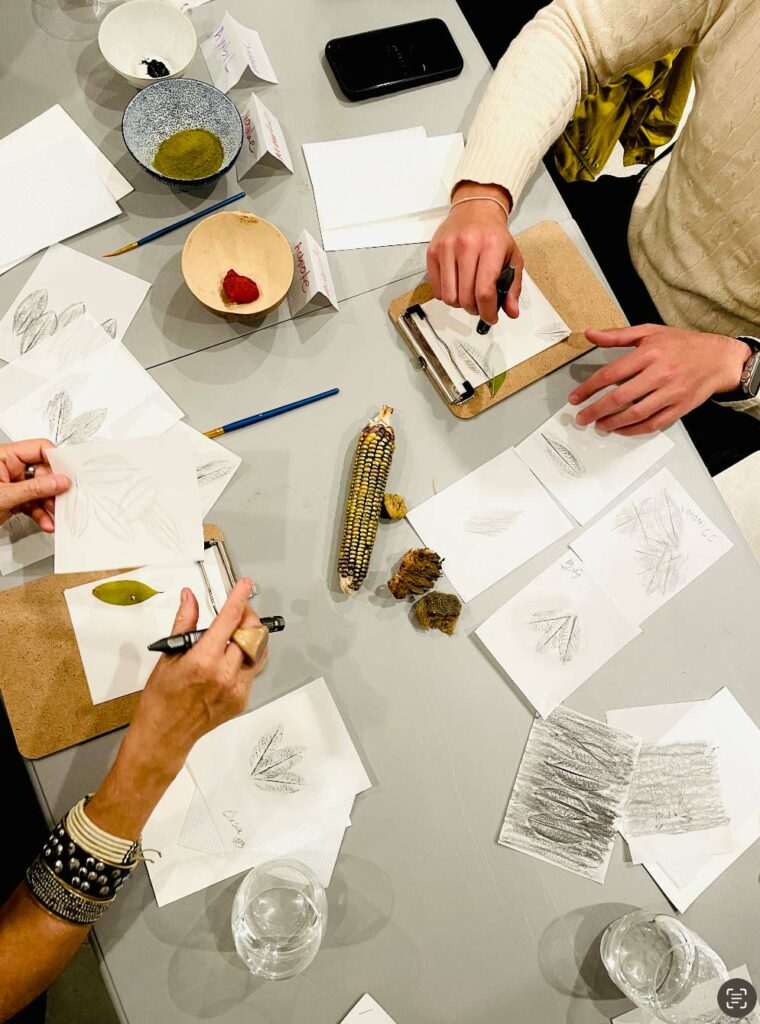

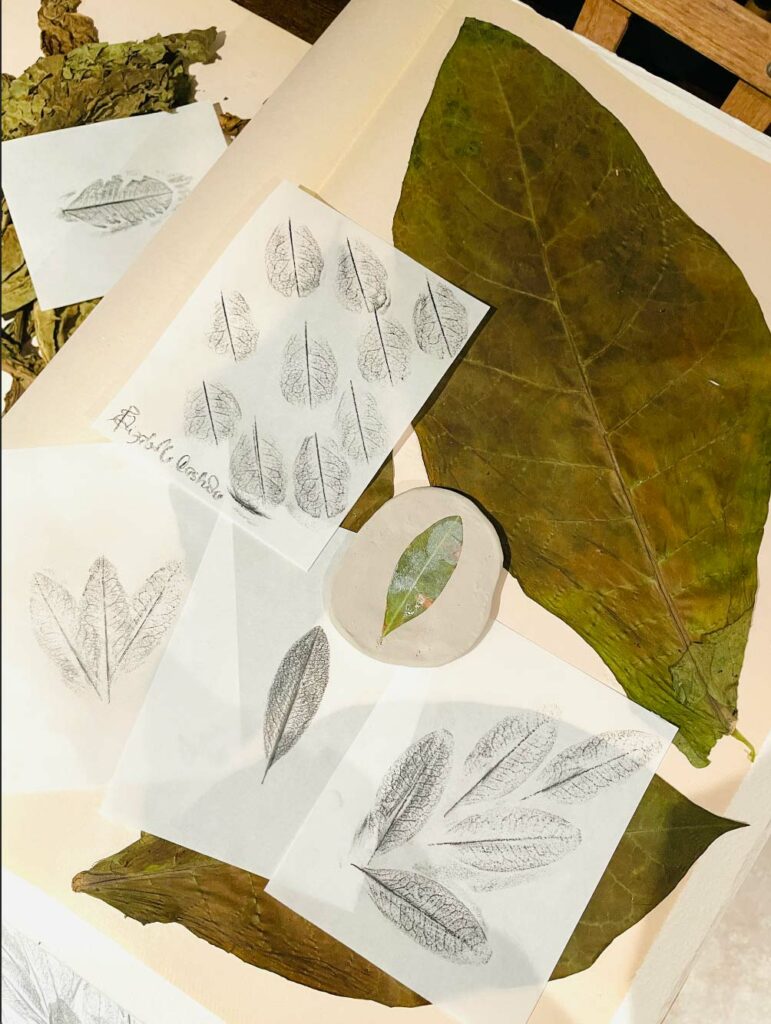
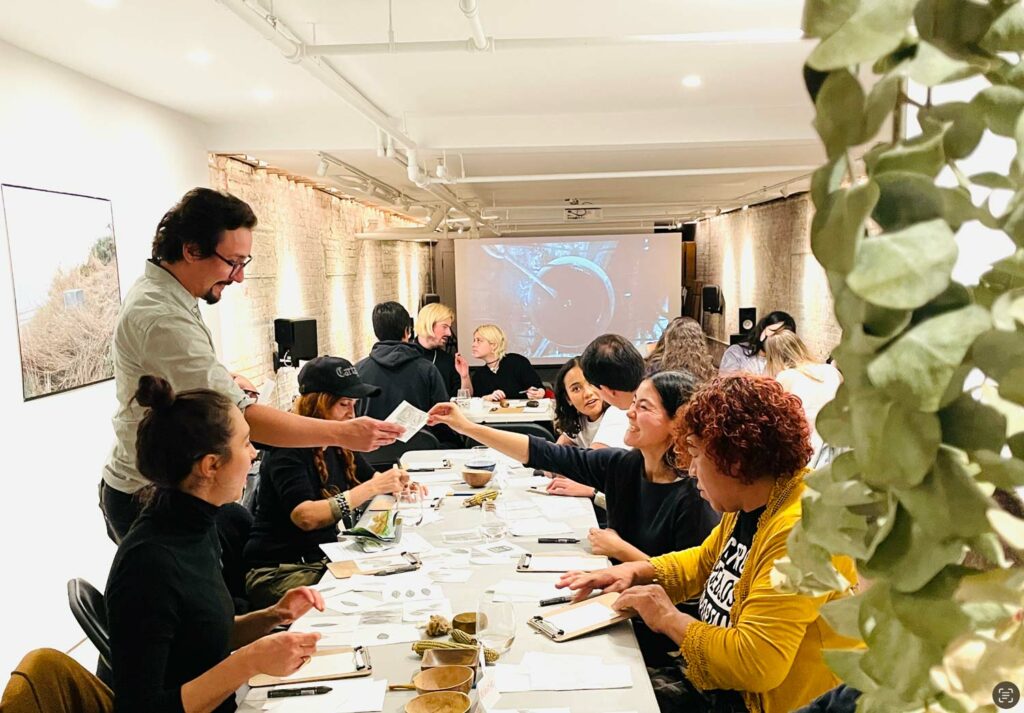
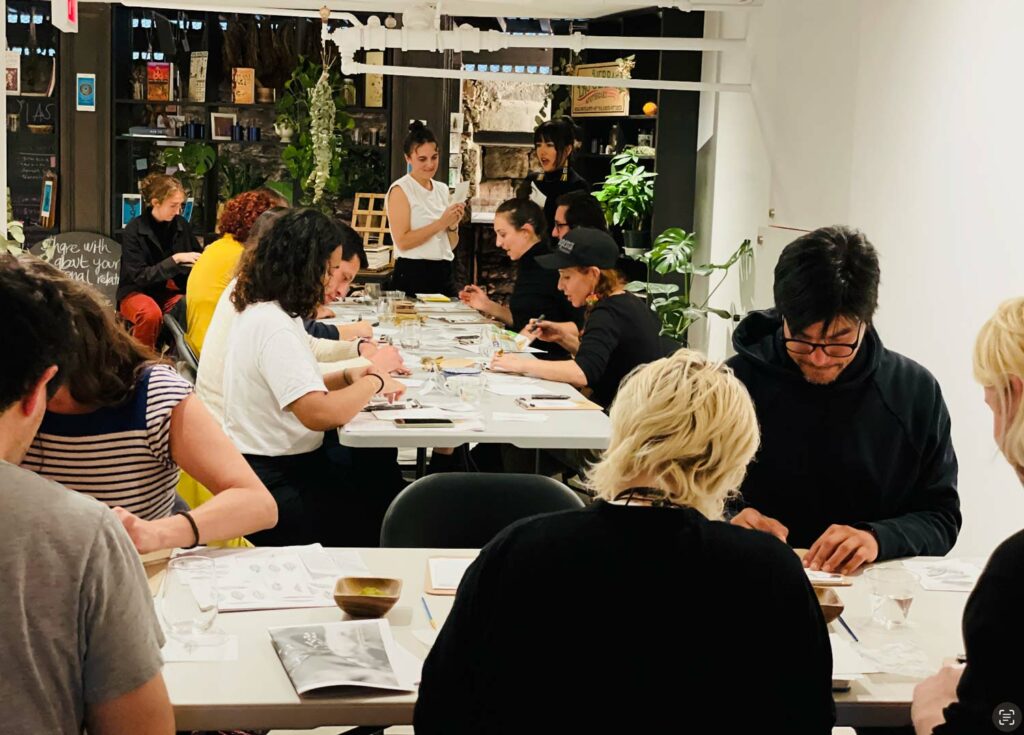
This workshop was developed by artist Tatiana Arocha and facilitated in collaboration with Liana Collective on October 14, 2023.
“Vegetal Narratives” Liana’s inaugural workshop featured Arocha’s art practice, which involves communing with plants through a personal lexicon of textures obtained by rubbing, photographing, preserving, and tracing the bark, seeds, and leaves of the forest. Throughout the workshop, participants were encouraged to shift their perception towards terrestrial narratives and challenge Western perspectives on nature, all with the aim of conveying the expressions and knowledge of plants.
Attendees explored the language of the coca leaf and other medicinal herbs through tactile contact, leaving their imprints on paper, clay and natural pigments. The workshop served as a platform for knowledge exchange and discussions regarding the agency of plants, their connection to healing practices, and elements such as smell, texture, color, and contrast.
Our participants included herbalists, traditional healers, ethnobotanists, farmers, and gardeners.
5. Coca Futures
Throughout the research, I will be facilitating and activating different future methodologies with the public, aiming to explore the future of Coca-Leaf. The result of this design and art-led research will be documented in an essay with the guidance of the Journal of Futures Studies.
These are the initial research questions:
- What can the future hold for cultivator countries like Bolivia, Colombia, and Peru if the legalization and regularization of the coca leaf and its derivatives get approved?
- What actions of reparation and reconciliation will be necessary for the plant, territory, and people?
